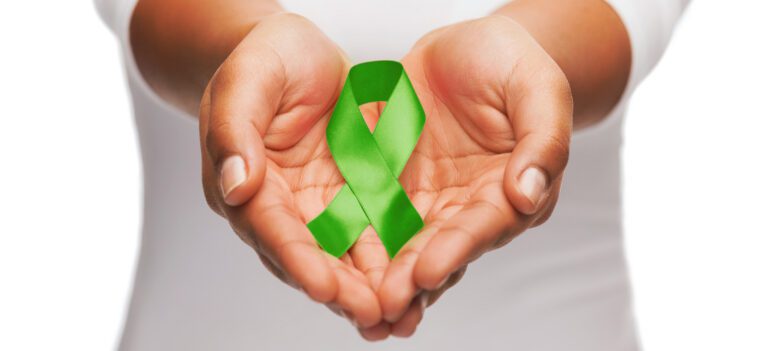Suicide, the Ultimate Killer That Does Not Discriminate
Warning: Possible trigger warning surrounding suicide awareness.
If you or someone you know is contemplating suicide, please call 911, or go to your nearest Emergency Room. You can also contact the National Suicide Prevention Hotline at 1-800-273-8255.
I know what it is like.
I have been there countless times before.
My mood dips.
My energy and motivation are nonexistent.
Soon, the intrusive thoughts begin. They start as a whisper and grow to a loud roar.
The medical term is “suicide ideation.”
There is no longer any hope. I am backed into a corner with no way out.
Does this sound familiar to you?
Current Events
Suicide has been a hot topic for the past couple of weeks. How can it not when two high-powered celebrities lose their lives to their own hand?
All over social media, people have been sharing their opinions on the subject. It seems like everyone is chiming in somehow.
The stigma surrounding suicide is huge.
People from all walks of life are affected.
It does not matter your gender, the color of your skin, political affiliation, sexual orientation, or any other label that you can attach to a person.
No individual is immune.
Anytime I hear that someone dies by suicide, I get extremely emotional and sad.
My Personal Experience With Suicide
I have debated whether to voice my opinion on the subject.
In reality, there should be no debate.
We need to discuss suicide and how a person gets to that point.
Let us look at my personal experience.
In my life, I have attempted suicide.
The general population is made up of neurotypicals. A neurotypical’s brain has a survival instinct to keep the individual alive.
A person without a neurotypical brain generally has a mental illness or other brain maladies.
This is not a hard and fast rule.
It is a generality.
Having a mental illness, my brain operates against human nature. Instead of having a survival instinct, my mind works to self-destruct. My brain does not want me to live, but to die. I have to fight this abnormal instinct every day.
That is why I perform several self-care activities each day to battle this counterintuitive urge.
The Myths and the Truths About Suicide
Myth #1 About Suicide
Suicide is selfish.
Truth #1
If you have ever experienced suicidal ideation, you know it simply cannot be a selfish act.
I understand those people who argue that suicide is selfish. It seems that way from the outside.
If you take a minute and put yourself in the shoes of someone who is suicidal, you can sympathize.
You see, suicide can seem like the ultimate in selfless acts. Many individuals feel like they are a burden to their loved ones. I remember when that thought entered my mind.
Before making a snap judgment, try some sympathy, love, and compassion.
Myth #2 About Suicide
You must have a mental illness to attempt suicide.
Truth #2
Mostly, this is true.
External circumstances can drive a person to take their own life. For example, finances, relationships, and other factors can contribute to the feeling that nothing will get better.
This might lead to suicide.
Myth #3 About Suicide
There is no hope when you are suicidal.
Truth #3
There is always hope. It may not feel like it when your mind is telling you there is not any.
Reach out for help.
Resources and people are willing to listen.
If you see a therapist and/or doctor, reach out to them.
Myth #4 About Suicide
Suicide only affects the poor community.
Truth #4
I do not understand why I have been hearing this statement.
Look at the recent events and the celebrities who took their lives in the past.
is not a problem specific to those with a certain socioeconomic status.
Myth #5 About Suicide
Everyone who attempts suicide wants to die.
Truth #5
Not every person who succeeds in suicide means to.
Many times, an individual simply wants to get rid of the pain.
Various types of medication can quickly become an accidental overdose.
Myth #6 About Suicide
The idea of “contagion” causes more people to die by suicide.
Truth #6
This could not be further from the truth.
Educating individuals about suicide will not cause a person to take their own life. There is simply no causal relationship between education and suicide.
We have heard this same argument before.
It goes back to the argument of sex education.
People used to say that talking to teenagers about sex and passing out contraception would increase the incidence of teenagers having sex.
No, there is no evidence to prove that educating teenagers about sex increases teenagers having sex.
Depression vs. Sadness
There is a big difference between experiencing sadness and depression.
Sadness is a natural human emotion that everyone feels. You know how it goes when you go through a breakup, losing a loved one, and many other events. These events trigger sadness. Our human nature is designed in this manner.
Depression is not something that everyone feels. It is a chemical imbalance that can have dire consequences if left untreated.
It is important to realize they are two separate and distinct features. You cannot use depression and sadness interchangeably.
Get Help
If you are concerned someone may be considering suicide, please seek out help immediately.
National Suicide Prevention Hotline
(800) 273-8255
Text 838255
Text HOME to 741741 in the U.S.







